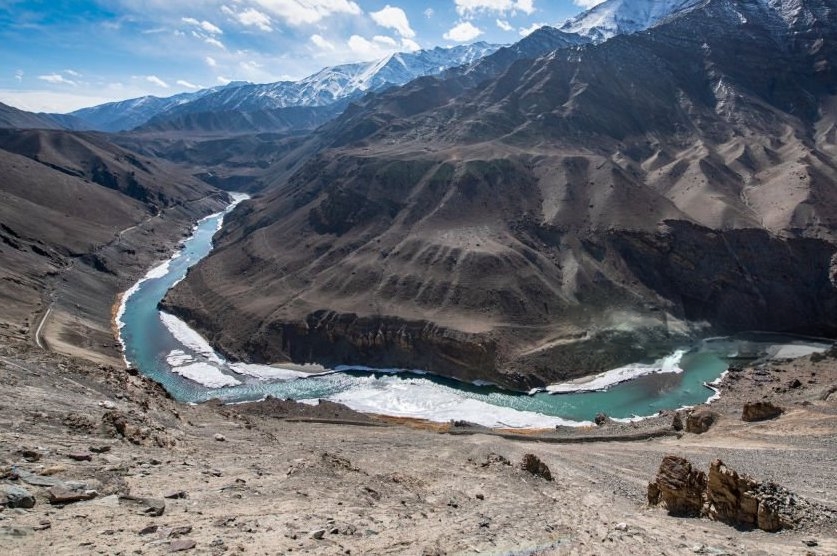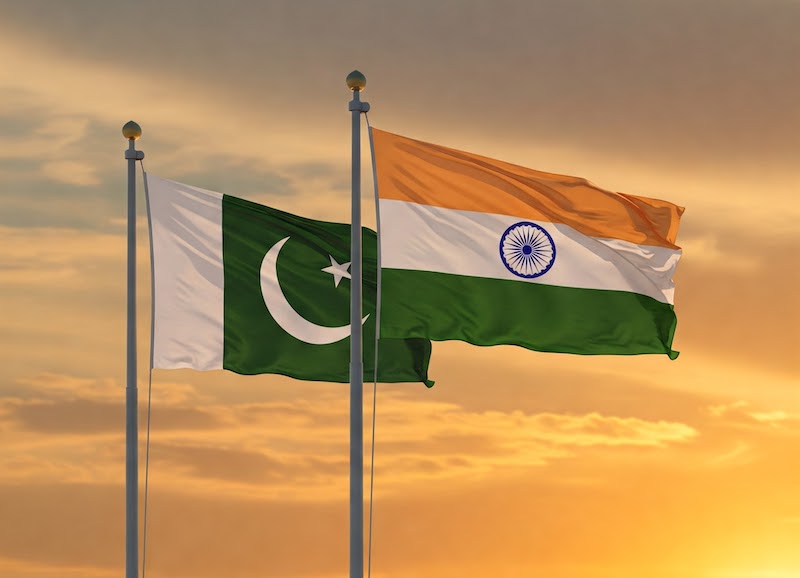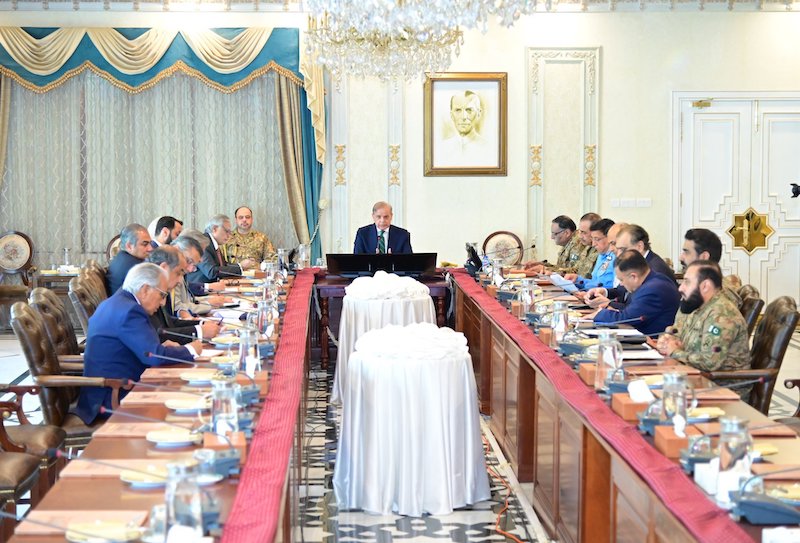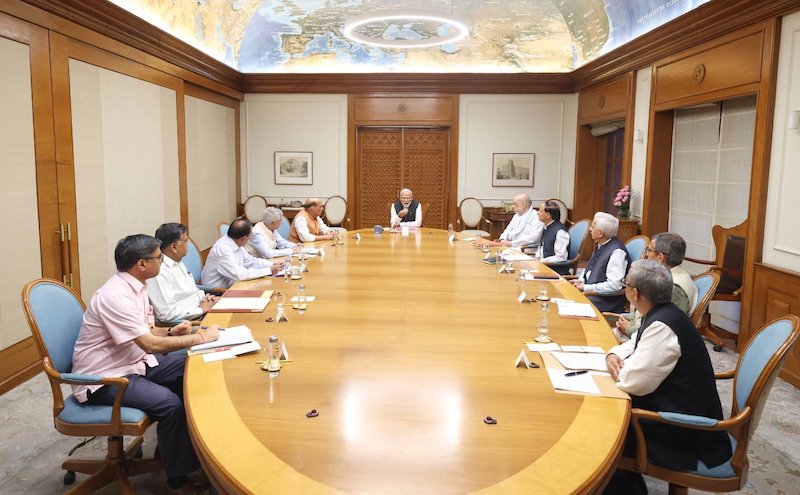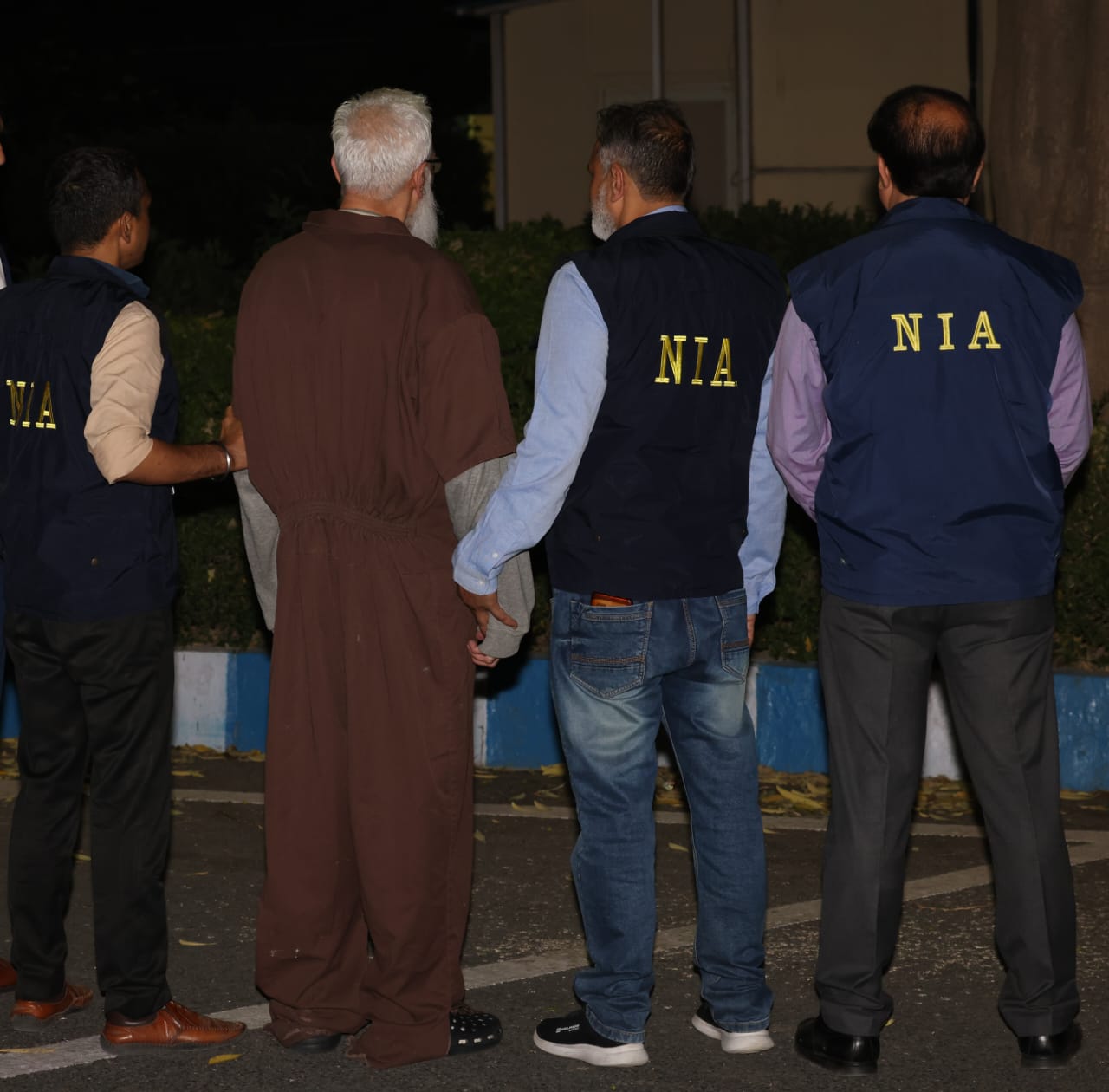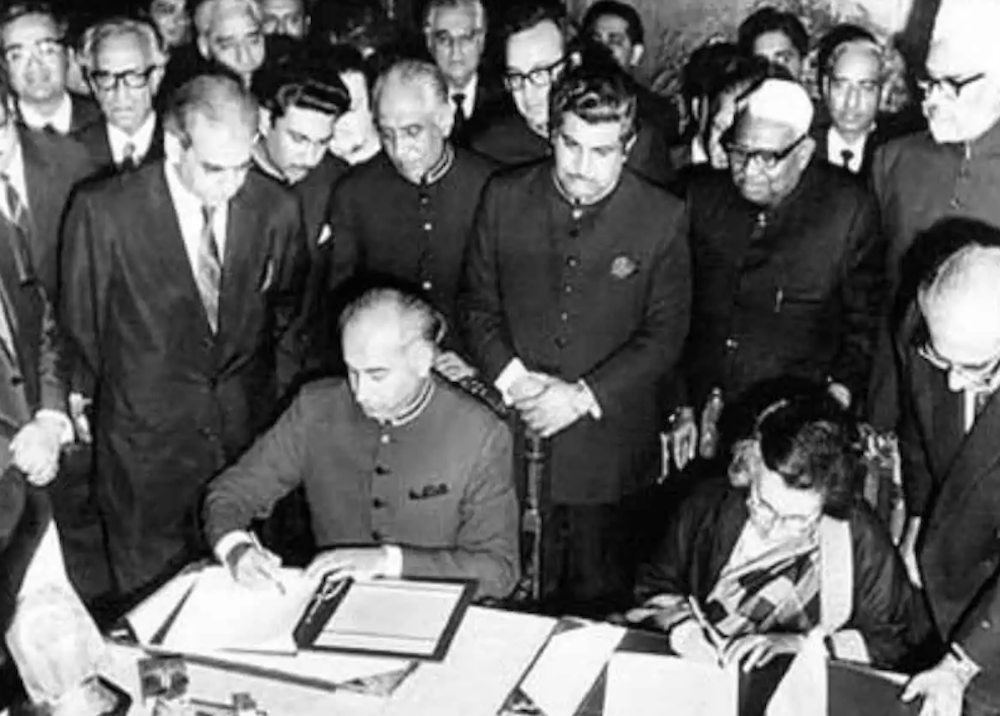 Indira Gandhi (seated right) signing the Shimla Agreement with Zulfikar Ali Bhutto, on July 2, 1972.
Indira Gandhi (seated right) signing the Shimla Agreement with Zulfikar Ali Bhutto, on July 2, 1972.
New Delhi: The suspension of the 1972 Shimla Agreement by Pakistan as a countermeasure for India suspending the Indus Waters Treaty following the terrorist attack on tourists in south Kashmir’s Pahalgam represents more of a diplomatic gesture than a substantive change in the already strained India-Pakistan relations. Following the devastating Pahalgam massacre, which claimed the lives of 27 tourists and a pony operator, India implemented several retaliatory measures against Pakistan, including suspending the IWT.
Pakistan’s response in suspending the Shimla Agreement, while appearing dramatic, carries limited practical consequences for India. This is primarily because the agreement has been effectively redundant for years, undermined by Pakistan’s persistent support for cross-border terrorism and its consistent efforts to internationalize bilateral issues, particularly regarding Kashmir, contrary to the peace pact’s core principles.
Read also: IWT suspension – A symbolic move with long-term implications
Historical Significance of Shimla Agreement
The Shimla Agreement emerged from the ashes of the 1971 India-Pakistani war that resulted in the creation of Bangladesh. Signed on July 2, 1972, between the prime minister, Indira Gandhi, and the Pakistani president, Zulfikar Ali Bhutto, the agreement established a framework for peaceful bilateral relations following the bloody conflict. It represented a significant diplomatic achievement for India, as it shifted discussions on contentious issues, including Kashmir, from international forums to bilateral negotiations.
At its core, the agreement contained several key provisions. It emphasized resolving all disputes through bilateral negotiations without third-party involvement, converting the ceasefire line in Kashmir into the line of control (LoC), normalizing diplomatic relations, and establishing the groundwork for trade and cultural exchanges. For India, the agreement’s focus on bilateralism was particularly significant, as it provided a mechanism to prevent Pakistan from internationalizing the Kashmir issue.
The agreement also addressed the immediate aftermath of the 1971 war, including the repatriation of prisoners of war and the withdrawal of forces to their respective territories. The war ended in an emphatic Indian victory with 93,000 Pakistani service personnel in custody as PoWs. It was designed to chart a new path toward peaceful coexistence between the two nations after decades of hostility. Both countries committed to respecting each other’s territorial integrity and sovereignty while refraining from interference in internal affairs.
Practical Death of Shimla Agreement
Despite the optimistic intentions behind the Shimla Agreement, its efficacy has been severely compromised by Pakistan’s continued support for terrorism directed against India. India has been highlighting the strong connections between Pakistan’s Inter-Services Intelligence (ISI) and various terrorist groups operating in the region, including Lashkar-e-Taiba, Jaish-e-Mohammad, Hizbul Mujahideen, and Indian Mujahideen, with concrete evidence.
New Delhi has showcased multiple evidence of Pakistan’s ISI providing terrorist groups with safe havens, resources, funding, and other support to carry out attacks in India. India has also consistently raised concerns about Pakistan’s support for cross-border terrorism in various international forums, despite the absence of high-level bilateral talks in recent years.
This state-sponsored terrorism directly contradicts the agreement’s fundamental principle of peaceful coexistence and non-interference in each other’s internal affairs. The recent Pahalgam attack, which prompted the current diplomatic crisis, represents merely the latest in a long history of terrorist incidents with alleged cross-border connections.
Internationalization of Bilateral Disputes
Perhaps the most significant violation of the Shimla Agreement has been Pakistan’s persistent efforts to internationalize the Kashmir dispute, despite explicitly agreeing to address it bilaterally. Pakistan has repeatedly raised the Kashmir issue at the United Nations, the Organization of Islamic Cooperation, and other international platforms, directly contradicting its commitments under the agreement.
In February this year, Pakistani diplomat Asif Khan accused India at the United Nations Security Council of “committing the worst form of state terrorism in ‘occupied’ Jammu and Kashmir” and conducting "demographic engineering" in the region. This clearly departs from the bilateral framework established in Shimla and demonstrates Pakistan’s ongoing strategy to involve international bodies in what was agreed to be a bilateral matter.
The agreement’s emphasis on bilateralism was integral to its design, aiming to shift the Kashmir issue “from an international forum to a bilateral discussion between India and Pakistan.” Pakistan’s consistent violation of this principle has rendered this aspect of the agreement functionally obsolete long before its formal suspension.
Violations of Line of Control
The Shimla Agreement established the LoC in Kashmir, replacing the previous ceasefire line. Both countries committed to respecting this boundary and refraining from attempts to alter it unilaterally. However, Pakistan’s support for infiltration across the LoC has repeatedly violated this commitment.
The 1999 Kargil war represented the most flagrant violation, when Pakistani forces and Pakistan-backed militants crossed the LoC and occupied positions on the Indian side. This direct military action against India’s territorial integrity fundamentally undermined the agreement. Additionally, continuous ceasefire violations along the LoC have further eroded the agreement’s validity as a framework for peace.
India has maintained that the infiltration of terrorists across the LoC, with support from the Pakistani military, constitutes a direct violation of the agreement. The Cabinet Committee on Security, led by the prime minister, Narendra Modi, recently addressed these cross-border connections in relation to the Pahalgam attack, further highlighting the ongoing nature of these violations.
Failure to Normalize Relations
The Shimla Agreement envisioned normalized diplomatic and economic relations between the two countries. However, bilateral ties have remained strained, with periods of limited engagement frequently disrupted by terrorist incidents and military tensions. Trade relations have never fully normalized, with Pakistan occasionally imposing restrictions on commerce with India.
The recent diplomatic crisis illustrates how far bilateral relations are from the normalization envisioned in 1972. India’s decision to reduce high commission staff from 55 to 30, expel Pakistani military attachés, and close the Attari-Wagah border crossing demonstrates the fragility of diplomatic ties.
Pakistan’s retaliatory closure of airspace to Indian flights and halting of bilateral trade further underscores the failure to achieve the normalized relations outlined in the agreement.
Agreement Already Ineffective in Practice
Given that the Shimla Agreement has been violated repeatedly and systematically by Pakistan over decades, its formal suspension represents more of a symbolic gesture than a substantive change in bilateral relations. The agreement had already ceased to function as an effective framework for resolving disputes or guiding bilateral engagement.
The bilateral dialogue mechanism envisioned under the agreement has been dormant for years, with high-level talks frequently suspended following terrorist incidents. Other frameworks and channels have emerged for limited engagement between the two countries, making the Shimla Agreement increasingly irrelevant in practical terms before its suspension.
In the years preceding the suspension, Pakistan had already violated virtually every significant provision of the agreement. The structure for bilateral conflict resolution had been bypassed, the commitment to respect the LoC repeatedly breached, and the promise of normalized relations remained unfulfilled. Against this backdrop, the formal suspension merely acknowledges an existing reality rather than creating a new one.
India’s Strategic Position Unchanged
From India’s perspective, the suspension does not materially alter its strategic position or policy approach toward Pakistan. India’s current diplomatic, military, and strategic policies have evolved significantly since 1972 and do not rely on the framework provided by the Shimla Agreement.
India has consistently maintained that terrorism and talks cannot proceed simultaneously – a position developed in response to Pakistan’s continued support for cross-border terrorism rather than based on the Shimla framework. This stance remains unchanged by the formal suspension of an agreement that had already ceased to guide India’s Pakistan policy in any meaningful way.
Moreover, India’s approach to the Kashmir issue has evolved independently of the Shimla Agreement, particularly following the constitutional changes in August 2019 that revoked Jammu & Kashmir’s special status. These changes were implemented unilaterally by India, reflecting the practical irrelevance of the bilateral framework envisioned in Shimla.
Limited Legal Implications
The formal suspension of the Shimla Agreement creates few substantial legal complications for India. The LoC, while established under the agreement, has gained recognition as a de facto border through decades of practice and international acknowledgment. Its status is unlikely to be affected by the suspension of the agreement that initially formalized it.
Similarly, India’s position that Kashmir is an integral part of its territory and that all disputes with Pakistan must be resolved bilaterally remains unchanged. This position is now based on broader principles of India’s foreign policy rather than specifically on the provisions of the Shimla Agreement.
From an international legal perspective, the suspension primarily signifies Pakistan’s intent to potentially pursue multilateral approaches to disputes, particularly regarding Kashmir. However, India has already been successfully countering such efforts for years, irrespective of the formal status of the Shimla Agreement.
Pakistan’s Domestic Political Considerations
Pakistan’s decision to suspend the Shimla Agreement appears largely motivated by domestic political considerations and the need to respond proportionately to India’s suspension of the Indus Waters Treaty. It represents an escalatory diplomatic move designed to demonstrate resolve to domestic audiences rather than a calculated strategy with clear international objectives.
The timing of the suspension, immediately following India’s measures in response to the Pahalgam attack, suggests a reactive rather than strategic decision. Pakistani authorities cited “India’s manifested behaviour of fomenting terrorism inside Pakistan, transnational killings, and non-adherence to international law and UN resolutions on Kashmir” as justifications for the suspension, narratives that have long been part of Pakistan’s diplomatic positioning rather than new developments.
Implications and Future Outlook
The suspension of the Shimla Agreement, while symbolically significant, is unlikely to substantially alter the trajectory of India-Pakistan relations. Both countries have developed alternative frameworks and channels for limited engagement when necessary, and the formal bilateral mechanisms established under Shimla had already fallen into disuse.
In the immediate term, the diplomatic crisis will likely persist, with restricted communication, limited trade, and heightened rhetoric on both sides. However, as with previous crises, back-channel diplomacy may eventually facilitate a gradual de-escalation without necessarily reinstating the Shimla Agreement in its original form.
The international community has expressed concern about the escalating tensions, with the United Nations calling for restraint and the United States emphasizing the importance of bilateral dialogue. However, these calls are unlikely to lead to immediate resumption of formal talks or reinstatement of suspended agreements.
Conclusion
Pakistan’s suspension of the 1972 Shimla Agreement represents more of a symbolic diplomatic gesture than a substantive policy shift with significant implications for India. The agreement had already been rendered practically obsolete by Pakistan’s persistent support for cross-border terrorism, its internationalization of bilateral disputes, and violations of the LoC.
For India, the formal suspension acknowledges an existing reality rather than creating a new challenge. India’s strategic position, approach to bilateral issues, and stance on Kashmir remain unchanged. The limited practical impact of the suspension reflects the agreement’s diminished relevance in guiding bilateral relations long before its formal abrogation.
As India and Pakistan navigate this latest diplomatic crisis, the focus will likely shift to managing immediate tensions rather than lamenting the suspension of an agreement that had ceased to effectively function decades ago. The challenge for both nations will be finding new pathways for necessary engagement in the absence of the symbolic, if ineffective, framework that the Shimla Agreement provided for over five decades.

